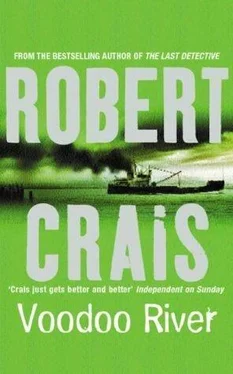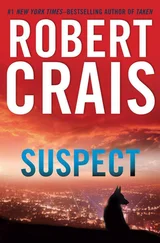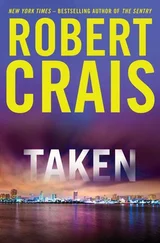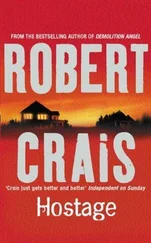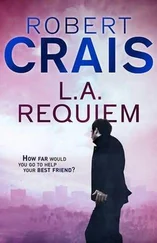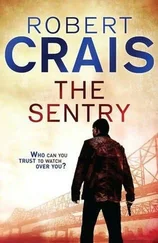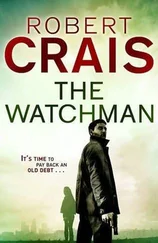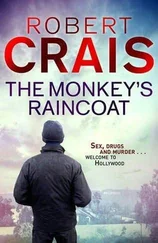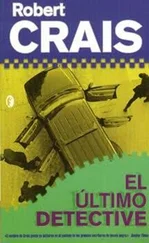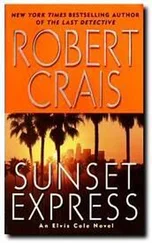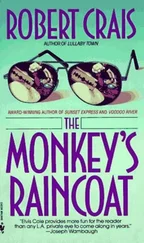I didn't say anything.
"I tell you something, and if you are smart you will listen. These men come from places of war where life has no value. They have executed hundreds, perhaps thousands. This man Frank Escobar, he has murdered many and he murders more every day. Prima himself is such a man." He seemed to have to think about how to say it. "There is so much murder in the air it is what we breathe. The taking of life has lost all meaning." He shook his head. "The gun." He shook his head again, as if in saying those two words he had summed up all he was about, or ever could be about.
I said, "What about the feds?"
Ramon del Reyo rubbed his thumb across his fingertips and said nothing.
I said, "If I wanted to take down Donaldo Prima, how could I do it?"
He looked at me with steady, soft brown eyes, then made a little shrug. "I think that by asking these things, you are looking to do good, but you will not find good here, Mr. Cole. This is a Godless place."
"I don't think you are without God, Mr. Del Reyo."
"I am afraid I will not know that until the afterlife, no?" We reached the little bench by the azaleas. Ramon del Reyo sat, and I sat with him. "We have talked enough, now. I will leave, and you will sit here for exacdy ten minutes. If you leave before then, it will be taken the wrong way and you will be killed. I am sorry to be rude in this way, but there we are."
"Of course." I imagined the man with the rifle. I imagined him watching for the sign, and I wondered what the sign might've been. A yawn, perhaps. Perhaps wiping the brow. The sign, the trigger, history.
Ramon del Reyo said, "If the man who is with you approaches, have him sit beside you and he will not be harmed."
I said, "What man?"
Ramon del Reyo laughed, then patted my leg and moved away, del Reyo and the guy with the Ray-Bans, then the others, and finally the Haitian. The Haitian made a pistol of his right hand, pointed it at me, and dropped the hammer. Then he smiled and disappeared into the crowd. What a way to live.
I sat on the lip of the bench in the damp heat and waited. My shirt was wet and clinging, and my skin felt hot and beginning to burn. Joe Pike came through the crowd and sat beside me. He said, "Look across the square, corner building, third floor, third window in."
I didn't bother looking. "Guy widi a rifle."
"Not now, but was. Did you make him?"
"They told me. They made you, Joe. They knew you were there."
Pike didn't move for a while, but you could tell he didn't like it, or didn't believe it. Finally he made a little shrug. "Did we learn anything?"
"I think."
"Is there a way out for the Boudreauxs?"
I stared off at the river, at the steady brown water flowing toward the Gulf, at the great ships headed north, up into the heart of America. I said, "Yes. Yes, I think there is. They won't like it, but I think there is." I thought about it for a time, and then I looked back at Joe Pike. "These are dangerous people, Joe. These are very dangerous people."
Pike nodded and watched/the river with me. "Yes," he said. "But so are we."
Ahot wind blew in off Lake Pontchartrain. The last of the clouds had vanished, leaving the sky a great azure dome above us, the afternoon sun a disk of white and undeniable heat. We drove with the windows down, the hot air roaring over and around us, smelling not unlike an aquarium that has been too long un-cleaned. We reached Baton Rouge, but we did not stop; we crested the bridge and continued west toward the Evangeline Parish Sheriff's Substation in Eunice, and Jo-el Boudreaux. He wouldn't be happy to see us, but I wasn't so happy about seeing him, either.
It was late afternoon when Pike and I parked in the dappled shade of a black-trunked oak and walked into the substation. A thin African-American woman with very red lips and too much rouge sat at a desk and, behind her, a tall rawboned cop with leathery skin stood at a coffee machine. The cop looked over when we walked in and watched us cross to the receptionist. Staring. I gave the receptionist one of my business cards. "We'd like to see Sheriff Boudreaux, please. He knows what it's about."
She looked at the card. "Do you have an appointment?"
"No, ma'am. But he'll see us."
The rawboned cop came closer, first looking at Pike and then looking at me, as if we had put in a couple of job applications and he was about to turn us down. "The sheriff's a busy man. You got a problem, you can talk to me." His name tag said WILLETS.
"Thanks, but it's business for the sheriff."
Willets didn't let it go. "If you're talkin' crime, it's my business, too." He squinted. "You boys aren't local, are you?"
Pike said, "Does it matter?"
Willets clicked the cop eyes on Pike. "You look familiar. I ever lock you down?"
The receptionist said, "Oh, relax, Tommy," and took the card down a short hall.
Willets stood there with his fists on his hips, staring at us. The receptionist came back with Jo-el Boudreaux and returned to her desk. Boudreaux looked nervous. "I thought you were gone."
"There's something we need to talk about."
Willets said, "They wouldn't talk with me, Jo-el."
Boudreaux said, "I've got it now, Tommy. Thanks."
Willets went back to the coffee machine, but he wasn't happy about it. Boudreaux was holding my business card and bending it back and forth. He looked at Joe. "Who's that?"
"Joe Pike. He works with me."
Boudreaux bent the card some more, then came closer and lowered his voice. "That woman is back and she's been calling my wife. I don't like it."
"Who?"
He mouthed the words. "That woman. Jodi Taylor." He glanced at Willets to make sure he hadn't heard.
"Sheriff, that's just too damn bad. You want to talk out here?"
Willets was still staring at us from the coffee machine. He couldn't hear us, but he didn't like all the talking. He called out, "Hey, Jo-el, you want me to take care of that?"
"I've got it, Tommy. Thanks."
Boudreaux took us to his office. Like him, it was simple and functional. Uncluttered desk. Uncluttered cabinet with a little TV. A nice-looking largemouth bass mounted on the wall. Boudreaux was big and his face was red. A hundred years ago he would have looked like the town blacksmith. Now, he looked awkward in his short-sleeved uniform and Sam Browne. He said, "I want you to know I don't appreciate your coming here like this. I don't like that woman calling my wife. I told you I'd handle my troubles on my own, in my own way, and there's nothing we got to say to each other."
"I want to report a crime. I can report it to you, or to the clown outside."
He rocked back when I said it. He was a large-boned, strong man and he'd probably fronted down his share of oilfield drunks, but now he was scared and wondering what to do. I wasn't supposed to be here. I was supposed to have gone away and stayed away. "What do you mean, 'crime'? What are you talkin' about?"
"I know what Rossier's doing, Sheriff. You're going to have to put a stop to it."
He put his hand on the doorknob like he was going to show us out. "I said I'll take care of this."
"You've been hiding from it for long enough, and now it's gotten larger than you and your wife and your father-in-law."
He said, "No," waving his hand.
"I'm showing you a courtesy here, Boudreaux. Neither your wife nor Jodi Taylor knows about this, though I will tell them. I'm giving it to you first, so that we can do this in private, where you want to keep your fat-ass troubles, or we can do it in front of your duty cops."
Pike said, "Fuckin' A." Pike really knows how to add to a conversation.
Boudreaux stopped the waving.
I said, "At eleven-thirty last night we saw a man named Donaldo Prima shoot an old man in the head at an abandoned pumping station a mile south of Milt Rossier's crawfish farm. They were bringing in illegal immigrants. Rossier's goons were there when it happened."
Читать дальше
